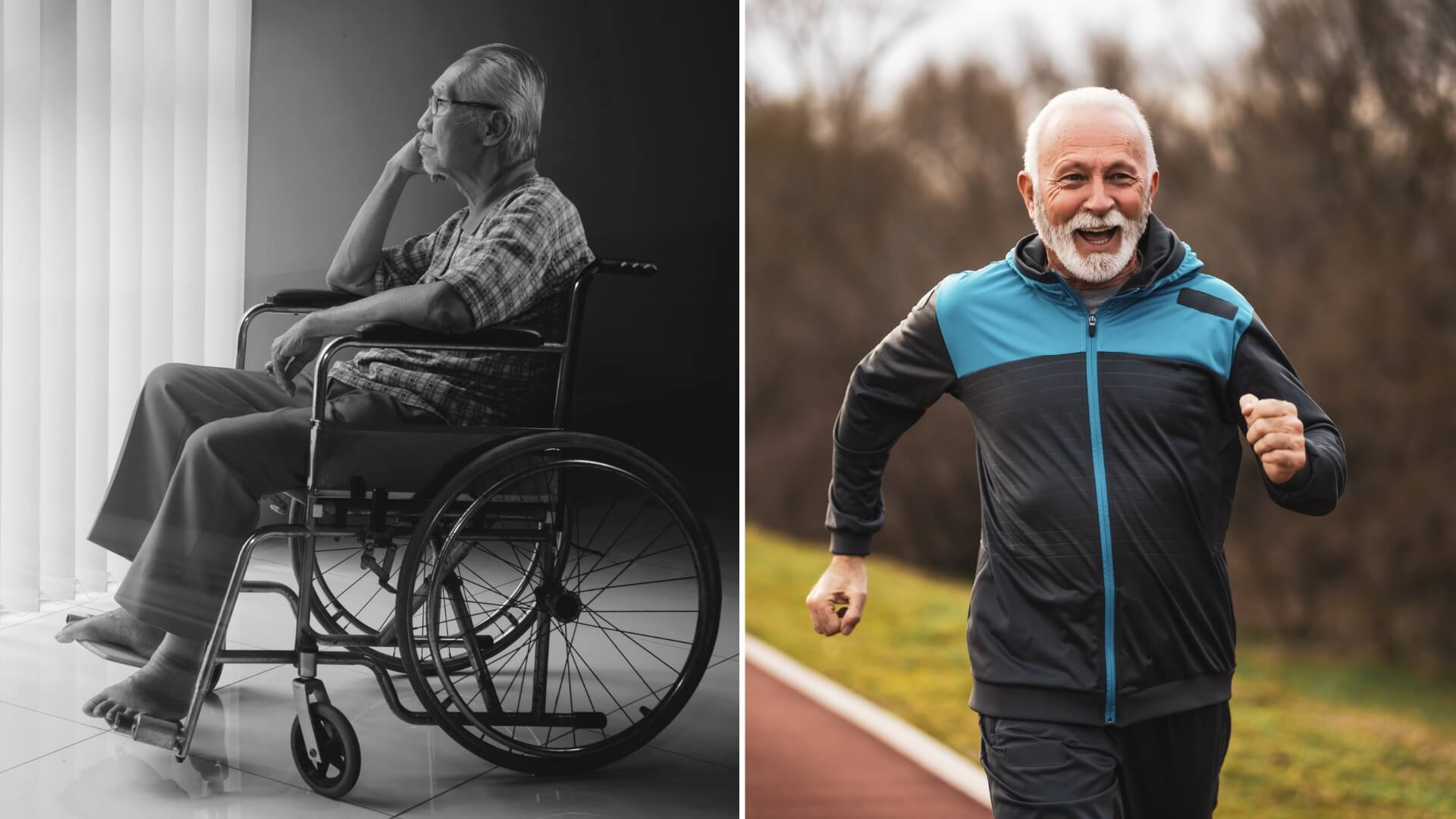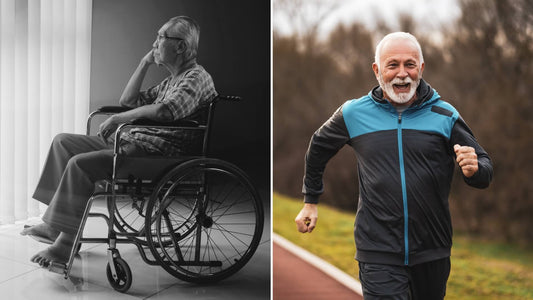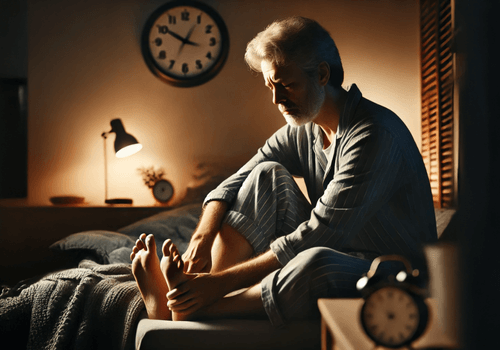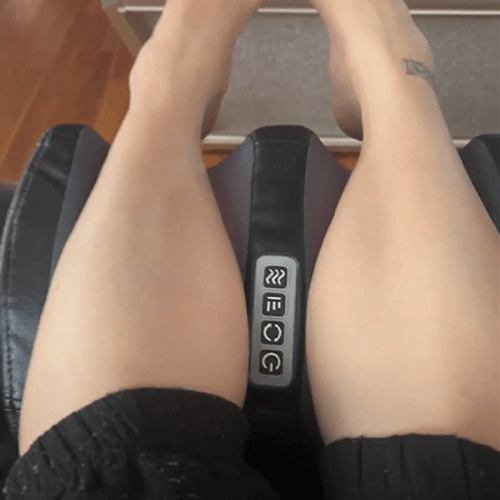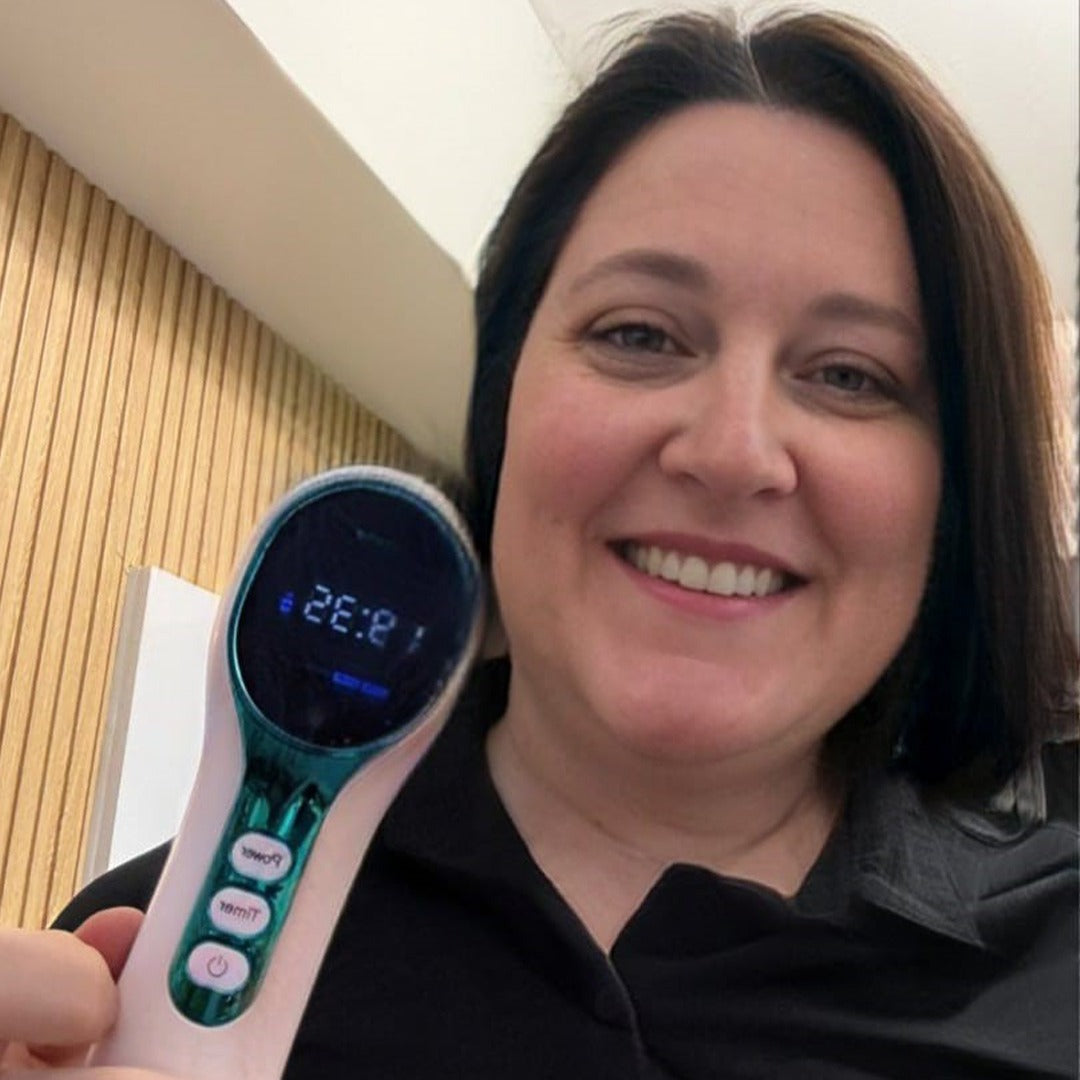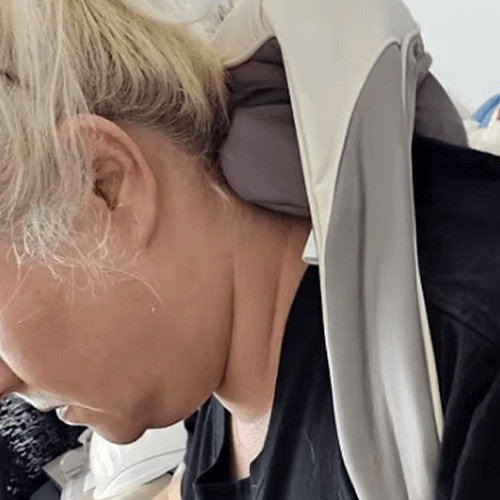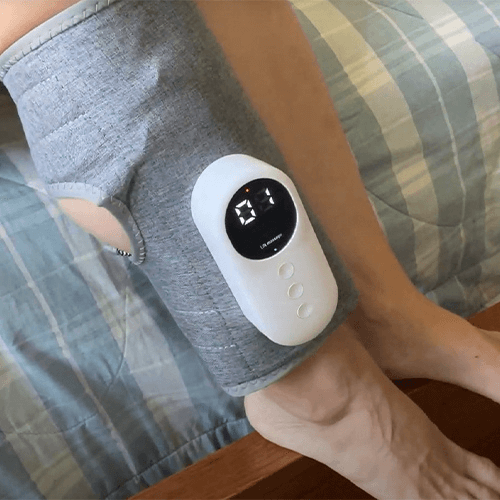If you've been living with neuropathy, you know the frustration all too well.
The burning sensations that keep you up at night. The numbness that makes every step uncertain.
The tingling that reminds you something's wrong even during your happiest moments.
But what's even more frustrating? Seeing others with the same condition get better while you continue to suffer.
The Mystery That Puzzled Doctors for Decades
Dr. Jeff Norman spent over 20 years treating neuropathy patients. During that time, he noticed a pattern that left him searching for answers:
Some patients would improve dramatically with treatment, while others with identical symptoms would show little to no improvement.
"At first, I thought it was just about consistency or perhaps genetics," explains Dr. Norman. "But then I realized I was missing something fundamental."
His search for answers became personal when he developed debilitating neuropathy himself following an illness.
"Suddenly, I wasn't just the doctor – I was the patient. And none of the treatments I prescribed for others were working for me."
The Breakthrough Discovery: Nerve Energy Drain

After months of research and self-experimentation, Dr. Norman discovered something that would change our understanding of neuropathy forever.
The problem wasn't just about nerve damage. It was about nerve energy.
Inside every nerve cell in your body are tiny power generators called mitochondria. Their job is to produce ATP – the energy currency your nerves need to function, communicate, and heal.
When these cellular power plants shut down, your nerves essentially "starve" for energy. Without enough ATP:
- Pain signals become erratic (causing burning and tingling)
- Nerve repair mechanisms slow to a crawl
- Communication between nerves and muscles weakens
This condition – which Dr. Norman calls "Nerve Energy Drain" – explains why so many neuropathy treatments fail to provide lasting relief.
"Most treatments focus on blocking pain signals or reducing inflammation, which can help temporarily. But if your nerve cells can't produce enough energy, they'll never properly heal or function correctly." – Dr. Jeff Norman
The Critical Difference Between Those Who Heal and Those Who Don't

Through extensive testing and patient studies, Dr. Norman discovered that the neuropathy patients who improved had something in common: their mitochondria were able to restart energy production.
Those who continued suffering? Their cellular power plants remained dormant despite various treatments.
This explained why:
- Some patients respond to certain supplements (which support mitochondrial function) while others don't
- Exercise helps some neuropathy sufferers (by stimulating energy production) but not others
- Many treatments provide temporary relief but fail to create lasting improvement
The question became: How do you reactivate these cellular power plants once they've shut down?
The Science of Photobiomodulation: Recharging Your Nerves

The answer came from an unlikely place – space exploration.
NASA scientists discovered that specific wavelengths of red and near-infrared light could penetrate human tissue and stimulate cellular energy production. Originally used to help astronauts' muscles and bones recover in zero gravity, this technology showed remarkable effects on nerve tissue.
When the correct wavelengths of light (specifically 808nm and 650nm) reach your nerve cells, something remarkable happens:
- The light energy is absorbed by photoreceptors in your mitochondria
- This triggers increased ATP production – essentially "recharging" your nerve cells
- With more energy, nerves can reduce abnormal pain signals and begin repairing themselves
This process, known as photobiomodulation, doesn't just mask symptoms – it addresses the root cause of Nerve Energy Drain.
Real Results from Real People
Margaret K. had suffered with diabetic neuropathy for 9 years. The burning pain in her feet made even short walks unbearable.
"I'd tried everything – gabapentin, pregabalin, creams, even acupuncture. Nothing helped for long. My doctor basically told me I'd have to live with it."
After learning about Nerve Energy Drain, Margaret began using light therapy to recharge her mitochondria. The results surprised even her doctor:
"After just three weeks, I could feel the bottom of my feet again when I got out of bed. After two months, I was walking around the mall with my grandkids – something I hadn't done in years."
Margaret isn't alone. Clinical studies of photobiomodulation for neuropathy show impressive outcomes:
- 76% of participants reported significant pain reduction
- Nearly 80% showed measurable improvements in sensation
- Improvements continued even after the treatment period ended – suggesting actual healing rather than just symptom relief
How to Tell If Your Nerves Are Energy-Starved
While only clinical testing can definitively diagnose Nerve Energy Drain, several signs suggest your nerves may be suffering from this condition:
- Your neuropathy symptoms are worse at night (when your body's energy production naturally decreases)
- You experience "good days and bad days" with your symptoms
- Traditional treatments work briefly but then effectiveness fades
- Your symptoms started gradually and have slowly worsened over time
- You feel more pain after physical or mental exertion
If several of these apply to you, Nerve Energy Drain may be contributing to your neuropathy symptoms.
Bringing This Solution Home: The RedRevive

Until recently, effective light therapy for nerve regeneration was only available in specialized clinics at a cost of thousands of dollars per treatment series.
Dr. Norman wanted to change that. After his own recovery using photobiomodulation, he dedicated himself to creating an affordable, at-home solution that delivered the exact same therapeutic wavelengths used in clinical settings.
The result is the Norelie RedRevive – a handheld device that combines both 808nm and 650nm light wavelengths specifically calibrated to reactivate mitochondrial function in nerve cells.
Unlike larger, clinical devices, the RedRevive is designed for ease of use:
- Lightweight and portable
- Simple one-button operation
- Precisely timed 15-minute treatment cycles
- Rechargeable battery for cordless use
- FDA-registered as a Class II medical device
Using the RedRevive for just 15 minutes daily on affected areas has helped thousands of neuropathy sufferers experience what seemed impossible – actual improvement in their condition.
Is This Right For You?
If you've been suffering with neuropathy, you know the toll it takes – not just physically, but emotionally. The constant pain, the loss of mobility, the feeling that you're missing out on life's precious moments.
You've probably tried numerous treatments, perhaps with limited success. Maybe you've even been told this is something you'll "just have to live with."
But now that you understand the role of cellular energy in nerve health, you have a new option – one that addresses the problem at its source rather than just masking symptoms.
The RedRevive isn't a miracle cure. It won't work overnight. But for many people who thought they were out of options, it's provided something invaluable: improvement when nothing else worked.
If you're ready to try something different – something based on sound science rather than quick fixes – the RedRevive might be worth considering.
And with our 60-day satisfaction guarantee, you can try it risk-free to see if recharging your nerve cells makes the difference you've been hoping for.
Learn more about the RedRevive →
Dr. Jeff Norman is a neurologist and pain management specialist with over 20 years of experience treating neuropathy. The information in this article is not intended to replace professional medical advice. Always consult with your healthcare provider before starting any new treatment.


